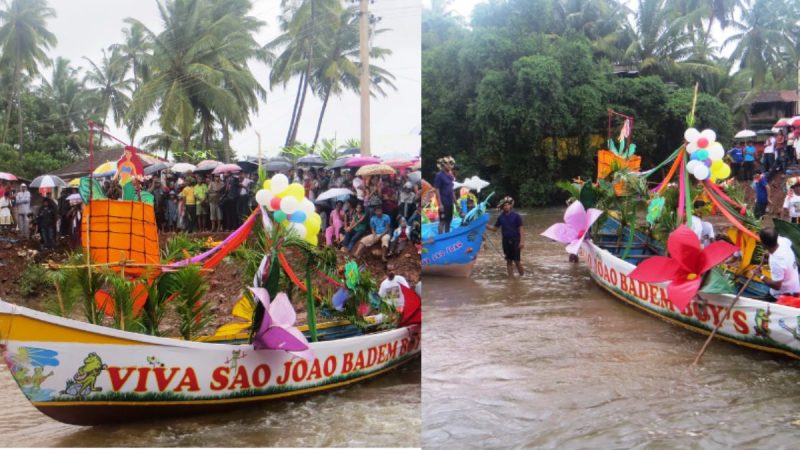With every monsoon, Catholics in Goa commemorate Sao Joao, the feast of St. John, on June 24. This festival honours Saint John the Baptist. The festival celebrates unique traditions, joyous festivities, and deep-rooted historical and religious significance.
What Is Goa’s São João Festival?
Traditionally, the villages of Cortalim in South Goa and Harmal, Baga, Siolim, and Terekhol in North Goa have lively Sao Joao festivities. According to the Goa Tourism Development Corporation, pool parties and private Sao Joao parties in Goa are about merriment and joy for travellers throughout the years. It’s a legacy of Portuguese colonisation that began in the early 16th century. The Portuguese brought with them their religious customs, including the veneration of Saint John the Baptist, which over time merged with local Goan culture to create a unique festival. The festival’s timing in June coincides with the monsoon season in Goa. This symbolises the renewal of life and the abundance brought by the rains.
The festivities also include revellers wearing the Kopel, a crown made of fruits, flowers, and leaves, marching around villages and frequently jumping from one location to another while chanting, “Sao Joao! Viva Sao Joao.” Traditional musical instruments back Konkani songs composed for the occasion.
Also Read: Pune Folks, Get Ready To Enjoy Goa Feels In Your City At The Newly-Launched The Fisherman’s Wharf!
How Is It Celebrated?
One of the most distinctive features of the São João Festival is the tradition of jumping into wells, ponds, and rivers. This practice symbolizes the act of baptism and Saint John the Baptist’s connection to water. On this day, young men don colourful headgear made of leaves, flowers, and fruits. They are known as “kopels,” and leap into water bodies, singing traditional Goan songs and shouting “Viva São João!” This exuberant act of diving into the water pays homage to the saint. Additionally, it serves as a ritualistic cleansing and a celebration of nature’s bounty.
Goan cuisine plays a significant role in the São João celebrations. Special festive dishes are prepared, reflecting the local flavours and culinary traditions. Families gather to enjoy sumptuous meals featuring delicacies. There’s sorpotel, sannas (steamed rice cakes), and patoleo (sweet rice cakes wrapped in turmeric leaves). The festival has also become a platform for showcasing Goan culture to a broader audience. Local artists and performers take centre stage, presenting folk dances and music.
The São João Festival in Goa is a vibrant tapestry of religious devotion, cultural pride, and communal joy. So, when are you heading to Goa?
Cover image credits: Flickr

